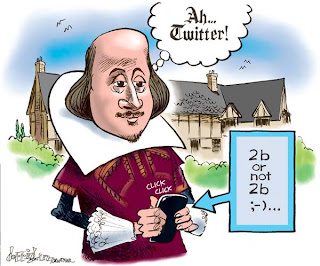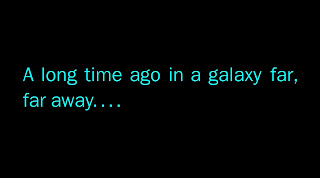I believe that Sugata Mitra has a much more plausible vision of where education should go in the future. Teachers should act as conduits of knowledge—asking the main questions and directing their students to the answers (however subtly). Mitra hints that group learning seems more prevalent in the future as it encourages variety among the students in their opinions. Finally, technological advances seem inevitable, so that students may rely on the web to further inform them.
So what do I plan for my 12th grade literature class to be like?
Easy.
I would like for my students to learn to value of education itself.
I know this may sound sort of silly, but it seems to me that in America education is often taken for granted. If I could teach my students anything, it would be the importance of learning—and I don’t necessarily mean the importance of learning literature.
Secondly, I would like my students to master the art of communication. Communication is key to living life well, I believe. Without effective communication, tasks like getting a job, finding a spouse, keeping a job, and keeping a spouse would be much more difficult if not impossible. The importance of communication is especially relevant in our technological world today. I would hate to see any spoken language perverted by wrds lk ths 4evr. And I certainly hope that I am not alone in this belief.
So how do I plan to accomplish these? I’m not all to certain exactly just yet, but if I was thrown into a classroom now, I would use the styles of teaching that worked best on myself and the classmates that I had which included (but was not limited to):
a ridiculous expectation concerning the amount of reading possible in a given week
essays (or short writing assignments concerning the literature) at least twice a week
an emphasis on group discussion during the class after having given a lecture on the author and the main social/political/economical of the time of the book’s conception. It seemed to be the prevailing theme in my own high school that the more you expect a student to accomplish, the more things they will find ways to accomplish.
Believe it or not, I do plan to use the internet in the classroom. Aside from reading various scholarly articles and academic journals on works, I also like to play the “how did Hollywood destroy the original work” game in which I’d like to challenge students to find all of the ways the director of the movie version decided to “artistically enhance” the original work. Hopefully, they’ll find that game as fun as I do.
I do not want my students to assume the role of audience when entering my classroom. In fact, I would like to assume that role (as an active audience) . I very much intend on my students speaking more in the classroom than I do. I want them to debate the meanings of a work and figure out amongst themselves which seems to be most accurate in a given context. I also want them to act out any plays we may read because Shakespeare, Miller, Williams, and even Sartre are so much more fun that way.


